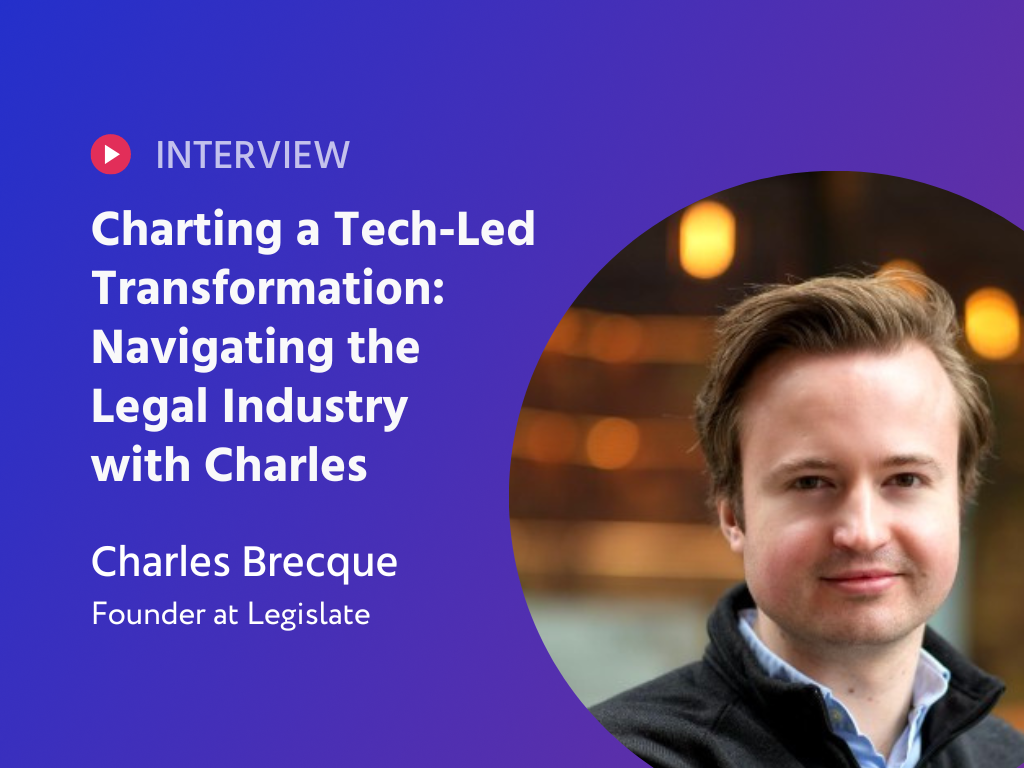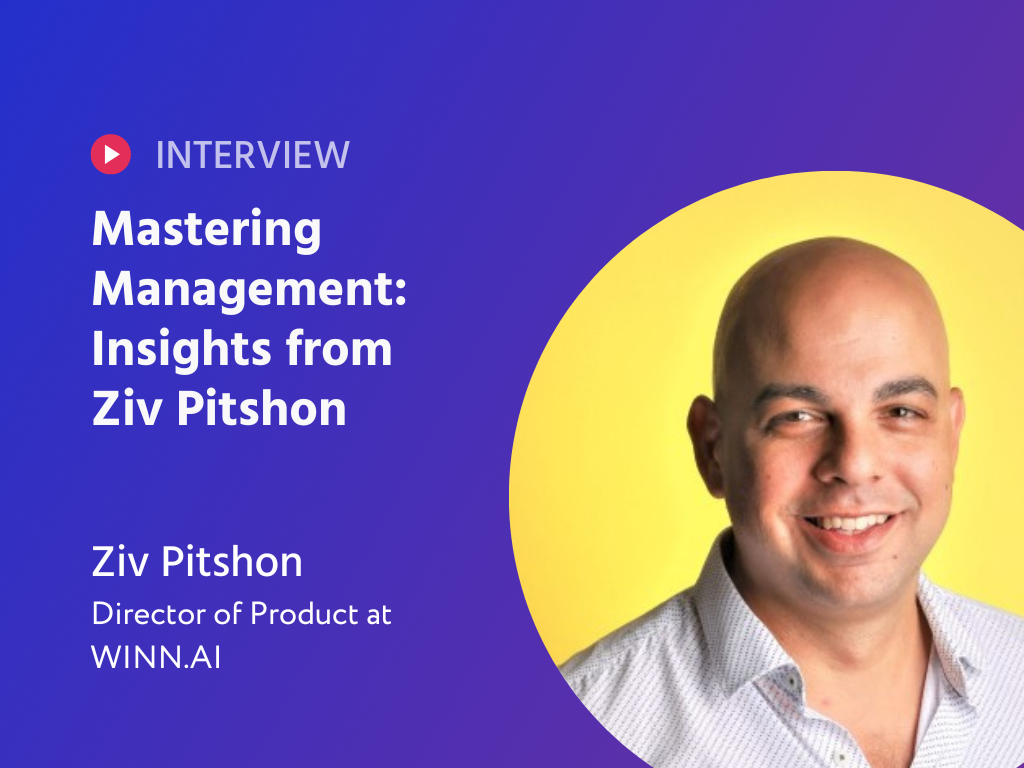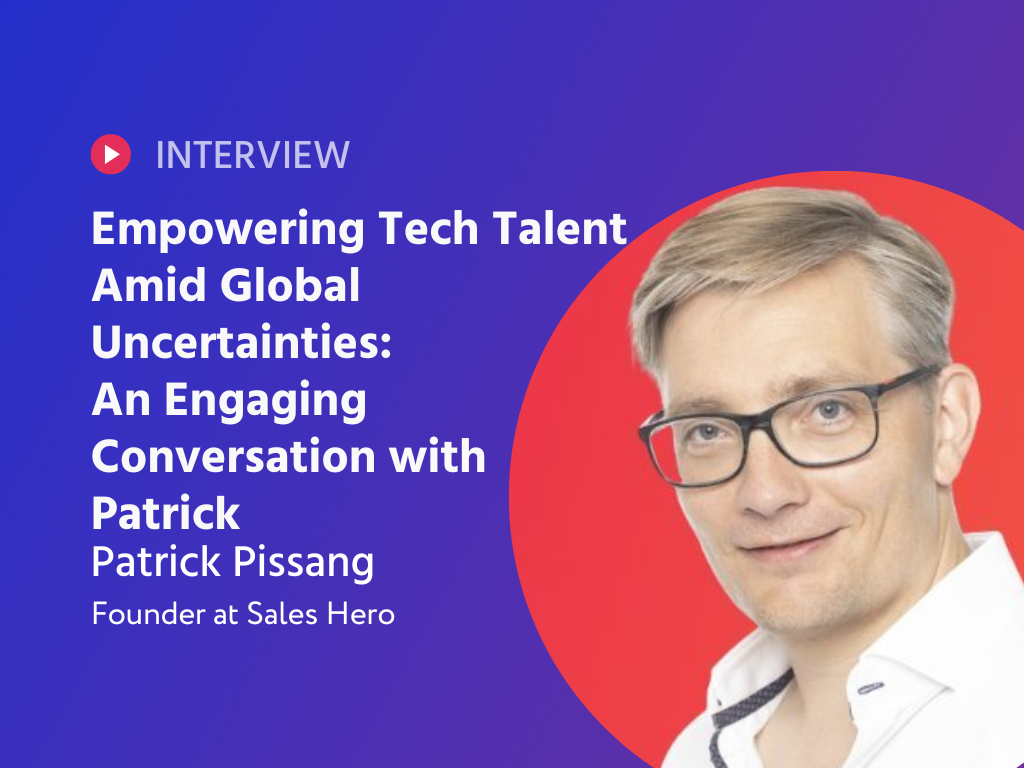In the latest episode of "Bright Founders Talk" at Temy, we had the privilege of engaging with Jean-Louis Quéguiner, the dynamic Founder and CEO of Gladia. This international software development firm is known for crafting cutting-edge solutions that empower sustainable businesses and burgeoning startups.
Throughout our conversation, Jean-Louis, affectionately known as JL, shared insights from his journey, which began with a deep-seated passion for science and technology. From his early coding adventures influenced by his father's academic career to his pivotal roles in major European tech firms, JL's path has been marked by innovation and foresight. His latest venture, Gladia, is a testament to his commitment to advancing machine learning and AI technologies, which he has been immersed in for over 15 years.
JL's story is not just about technical expertise but also about his dedication to community building and entrepreneurship. As we explore his narrative, listeners will gain a unique perspective on the challenges and triumphs of leading a high-tech startup in today's competitive landscape. Join us as we delve into the mind of a visionary who has not only predicted trends but has also helped shape the future of technology.
From Pixelated Screens to Pioneering Pixels: Jean-Louis Quéguiner’s Journey in Tech and Entrepreneurship
Jean-Louis Quéguiner, known to friends and colleagues as JL, brings a lifetime of tech fascination to our latest episode. With a casual chuckle, he recalls the early days of his tech adventure, ignited by video games and a father who, although a computer science teacher, was surprisingly indifferent about technology. "For me, having fun at home was diving into my dad's computer tests and coding in languages like Pascal," JL shares, his voice brightening as he discusses his formative years, coding away in the glow of his family's old computer screen.
For me, having fun at home was diving into my dad's computer tests and coding in languages like Pascal
JL's journey wasn't just about following in family footsteps; it was carved out of a genuine passion for understanding how things work behind the scenes of his favorite video games. "I was about seven when I first installed a game by myself. You should've seen me, navigating DOS commands like a pro," he laughs, recounting stories of troubleshooting and inevitable mishaps that led to more than one system crash. These early experiences not only taught him about the intricacies of computers but also sparked a curiosity that would define his career path.
Reflecting on his transition from gamer to tech guru, JL notes, "It's fascinating how early passions can lead you to unexpected places." His venture, Gladia, which started as a small project fueled by his love for machine learning and big data, has now turned into a significant player in the tech industry. "You just never know where a simple interest can lead you," JL muses. His story is a testament to the power of passion and perseverance—encouraging our listeners to explore their interests deeply, no matter how niche they may seem.
Navigating the High Seas of Startup Funding: Jean-Louis Quéguiner's Insightful Voyage
The path to securing startup funding is rarely straightforward, but according to Jean-Louis Quéguiner, the journey becomes particularly intricate as you move beyond initial seed rounds. In the throes of his 'A' round fundraising, JL found himself navigating through the critical need for not just a product, but one that fits the market like a glove. "Initially, there was no challenge, but later, you really need to show you've nearly perfected your product-market fit," JL explains. This need for precision becomes a continuous quest for alignment between what’s developed and what the market craves.
Jean-Louis candidly shared that transitioning from seed to Series A funding shifts the investor focus significantly. "In seed rounds, investors bet on you, the person. But as you advance, it’s all about the robustness of your project and its market viability," he remarks. The competitive landscape in AI, dominated by giants like OpenAI, adds an additional layer of complexity. JL posed a challenging question he faced: "How do you stand out when you’re up against behemoths with seemingly limitless resources?" This daunting task requires a startup to not only carve out but also deeply anchor its unique position in the market.
In seed rounds, investors bet on you, the person. But as you advance, it’s all about the robustness of your project and its market viability
Perhaps the most resonant advice JL offers relates to recognizing when you've truly achieved product-market fit—a moment of clarity that he likens to falling in love. "You will know," he assures, with a confidence that only experience can bring. The market's enthusiastic reception of your product is akin to the undeniable chemistry in a new romance. It's not just about ticking boxes or meeting predefined criteria; it's about right time, right place, and right feeling. JL’s approach underscores an essential truth for entrepreneurs: the path to success is as much about passion and intuition as it is about strategy and metrics.
Breaking Language Barriers: Jean-Louis Quéguiner's Strategic Mastery in Global Tech
Jean-Louis Quéguiner has led his company to secure major clients like Citibank, Microsoft, and Oracle by focusing on a simple yet powerful business principle: solving a universal problem. In a tech-saturated market, the ability to offer rapid and cost-effective speech-to-text services proved pivotal. JL outlined the strategy that set them apart: "By speaking to as many potential users as possible, we identified a critical pain point—speed. Traditional batch speech recognition took intolerably long, creating a bottleneck for businesses." His team's solution was not just faster but also more affordable, tackling the high costs that were the industry standard.
Delving deeper, JL revealed that their success hinged on addressing multilingual challenges unique to the European market, which had been largely overlooked by American competitors. "There’s a significant technology gap in speech recognition for languages other than English," he explained. The strategic pivot to focus on this "blue ocean" market—where competition was scarce—allowed them to cater to a vast, untapped audience. "While others focused on the crowded English-speaking market, we turned our attention to the diverse linguistic landscape of Europe, where each language presented a new opportunity," JL stated, emphasizing the importance of this under-served sector.
There’s a significant technology gap in speech recognition for languages other than English
JL’s vision for multilingual and real-time transcription services illustrates a keen understanding of global market dynamics. "You need to find your niche and serve it well. For us, that meant creating high-quality, real-time solutions for non-English speakers across Europe and Asia," he shared. This approach not only differentiated his company but also positioned it as a leader in a complex, multilingual environment. His best advice to other founders resonates with clarity and purpose: "Identify a problem that is painful enough for a large number of people, and solve it better than anyone else." This customer-first strategy has not only fueled their growth but also solidified their reputation as innovators in a competitive space.
Unraveling AI Myths with Jean-Louis Quéguiner: A Realistic Perspective on Future Tech
Jean-Louis Quéguiner, the visionary behind cutting-edge AI applications, delves into common misconceptions about AI, emphasizing its limitations and the overly optimistic expectations society tends to hold. “AI can't solve everything,” Jean-Louis points out, highlighting the gradual shift in his own perspective regarding artificial general intelligence (AGI) — from skepticism to a cautious acknowledgment of its near-term possibilities. “We have the right to be wrong,” he remarks, capturing the essence of evolving tech predictions. His realistic view challenges the popular narrative of AI as a panacea, stressing that while AI advances are impressive, they cannot yet replicate the simple, instinctive understandings of the world that humans, even infants, possess.
AI can't solve everything
Expanding on the technical limitations, Jean-Louis discusses AI’s struggle with bias and fairness, particularly in natural language processing. “AI is fairly stupid,” he candidly states, addressing the errors and inaccuracies that arise when AI systems interact with diverse human inputs, such as variations in gender or accents. This inherent bias not only affects performance but also raises significant ethical concerns. His insights into these discrepancies reveal a critical oversight in AI development: the technology’s current inability to provide equitable outputs across different demographics.
Jean-Louis also reflects on the broader ethical landscape of AI technology, including data ethics and environmental impact. He stresses the importance of sustainable development in AI, pointing out the ecological costs of massive data centers and the ethical dilemmas surrounding data sourcing. “We need to be thankful for the planet,” he advises, advocating for a more conscientious approach to AI development that considers long-term impacts on society and the environment. His forward-thinking approach calls for an AI ecosystem that supports not only technological advancement but also ethical integrity and sustainability.




